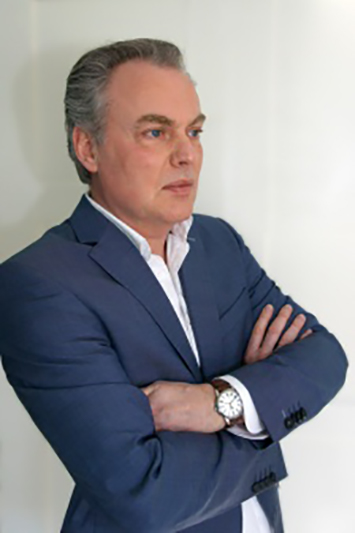Interview with Martin Rischke,
General manager,
turbo division
When did you start your career at MTEE?
I started my career at MTEE in 2000, at the start of the new millennium. I was already working in the automobile industry at a company that made car body panels. In the same year I joined MTEE I got to know Bas Bonnier, at that time an engineering manager assigned to build an engineering team in Almere. Turbocharging was still very special at the time, so I found it a very interesting opportunity. I became the first engineer to start working at MTEE, next to Bas. Everything was done in Japan at the time and we were the interface between engineering in Japan and the customers in Europe. Gradually we brought more and more engineering work from Japan to Almere and the company started growing steadily.
What is your background?
I studied automotive engineering at HTS, the automotive technical school in the Dutch town of Apeldoorn. This was an easy decision, as I always liked cars and car mechanics. I would spend my days working on old cars, rebuilding engines, etc, so I always knew I wanted to work in the car industry.
At that time you could choose between purely technical or business and economics, and I chose the technical direction. However, after graduation, and to have a broader education, I decided to do a degree in business administration.
What made you stay so many years in the same company?
I think it mainly comes down to trust and opportunities to grow. From early on there was mutual trust between the Japanese management and me, which gave me a lot of freedom and room to grow and learn. But I actually did leave the company for a year in 2011. An opportunity came my way that I simply could not say no to. It came to be an extremely valuable year for me. I learned so much in that one year that I was able to bring back and implement at MTEE. The company I was working for was in financial difficulty at the time. This was tough, of course, but very educational. I learned a lot of financial skills that I could use to take MTEE to the next level when I returned.
How did you find being general manager in a Japanese company?
The first thing I want to say is that this is obviously not a Japanese company anymore. It is a European company now. However, when I first started working here it was still a very Japanese company. Communication was difficult. We understood what our customers wanted and had to convey this to Japan and the other way around. I found out that there was a lot of value to be had in making the Japanese understand the European customers and the other way around.
It has been a very positive experience for me to work here due to the mutual trust and open communication with the Japanese management. Naturally, there are some cultural differences. The biggest difference in my experience is that we Dutch are used to seeing things in black and white, and the Japanese can better live with things being grey. However, with mutual trust and openness, these kind of cultural barriers are easily overcome.
What would you say was one of your most interesting assignments while working at MTEE?
In two decades, I have done so many different things in this company, so it is impossible to only choose one thing. However, some of my most interesting assignments have been setting up a more project-oriented way of working in the company, both for project engineering and for project management. The development of Verum, our project information-sharing system, has also been a very interesting process – translating the needs of the company into a logic system. In general, I have always created my own assignments whenever I could see a need for change. This has always made my work feel very meaningful and has motivated me to keep moving the company forward.
What is your dream car and why?
To be honest, I have no dream car among modern cars. I prefer cars from the mid 50s to the end of the 60s. In my opinion these were the most beautiful cars, especially the Italian ones. My favourite model would definitely be the Alfa Romeo Tipo 33 Stradale. This is the most beautiful car in both design and technical performance.This will remain a “dream car” though, as only 18 of them were ever made.
What is your future vision for the company?
It is clear that the automotive industry is changing, and so we need to adapt as a company. However, turbochargers will definitely still be needed in the industry. No one knows exactly how the electrification of cars will develop in Europe, but it seems inevitable that our market here will shrink.
As long as our customers are developing their engines here in Europe, there is reason for us to exist. But we need to make sure that we stay competitive in all aspects. We are located in a labour-expensive country and it needs to make sense to keep production here. We need to not only stay competitive ahead of our competitors. To keep production here in the future, it will be necessary to go to a higher level of automation. I see us more as a research and development company in the future, with some local production where it makes sense. We need to keep thinking about new products and make the most efficient investments for the future.
I’ve always been proud to work for this company. There has always been this mentality and flexibility in the company that “Of course we can do this.” As long as we work together, we will find solutions and get things done. I want us to hold on to this mentality in the future and keep moving the boundaries.



